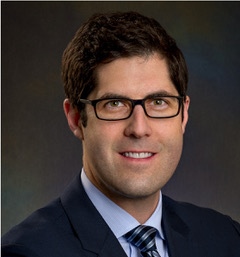Congratulations to David Friedlander, MD, MPH on being selected to participate in the 2021 High-Value Practice Academic Alliance’s (HVPAA) Value Innovation Teaching and Leadership (VITAL) program. The VITAL program provides early-career faculty with the knowledge and experience to lead high-value care projects at their institutions and serve as mentors for medical trainees.
“Throughout my educational and professional training, I have had the good fortune of gaining significant exposure to the health policy process, including how to conduct meaningful health services research that seeks to generate real-world data aimed at driving the aforementioned policies. However, understanding how to translate these findings into meaningful policy and/or clinical interventions that improve the value of ‘everyday’ health care remains unclear.”
“The VITAL program will provide important exposure to and mentorship in implementation science, which I hope to integrate into my academic career as an aspiring surgeon-scientist. More specifically, I hope to use the ‘toolkit’ afforded through the VITAL program to develop meaningful value-driven quality improvement interventions that will help inform ongoing funded research projects focused on improving the value of perioperative care for urology patients.”
David Friedlander, MD, MPH
Assistant Professor of Urology
Implementation at UNC
Here at UNC, Dr. Friedlander’s research efforts have recently focused on characterizing and determining factors associated with high-value pathways of surgical care, with a particular interest in the treatment of urinary stones. Dr. Friedlander looks to continue to expand his efforts and supplement his work with the insights gained from participation in the VITAL program.
“Urinary stone disease is a common condition – affecting 1 in 10 US adults – uniquely suited to evaluate determinants of surgical pathways of care: the disease incurs high population-level costs (~$10 billion annually) with multiple treatment options and large variation in practice and care setting.”
“Using all-payer claims data, we have shown that much of the variation in care can be attributed to non-clinical factors such as education and income level.”
“Implementing value-based interventions that reduce structural barriers to high-value perioperative care may both improve patient experience and reduce costs, especially among at-risk sociodemographic groups.”
David Friedlander, MD, MPH
Assistant Professor of Urology
More About The High-Value Practice Academic Alliance
As the cost of health care in the United States continues to rise, medical bills are creating substantial hardships for patients and the cost of health care is now the biggest financial concern facing American families. The High-Value Practice Academic Alliance was created in 2016 by faculty leaders from 100 partner institutions representing >30 different medical specialties & subspecialties to address these issues.
Through cross-institutional collaboration, successful value improvement work in one academic center can be advanced nationally to lead large-scale improvements in health care value. Member centers also work together to design new value-based quality improvement initiatives and disseminate results in the medical journals for broad impact.

